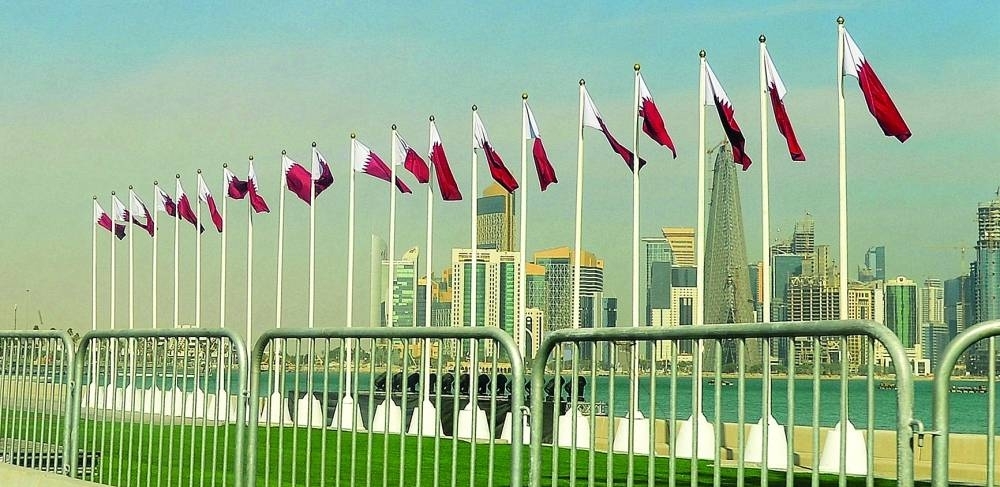
Qatar has a stable and resilient economy, pro-business climate, vibrant knowledge ecosystem and rich culture, and unparalleled market access and connectivity, according to the IPA Qatar study.
Qatar and the GCC region are emerging as major players in the global halal economy, which is poised to experience a massive growth spurt, with revenues seen to hit $7.7tn by 2025, according to the Investment Promotion Agency Qatar (IPA Qatar).
IPA Qatar’s sectoral study, which was posted recently on its social media channels, also outlined the top three reasons to invest in the State of Qatar’s halal economy, citing access to globally recognised halal certification bodies; as a hub of excellence for Islamic economics and finance; and is ranked among the top-performing countries for Islamic tourism.
The study reported that the global halal economy is anticipated to experience exponential growth in consumer expenditure by 2025 driven by the following sectors: Islamic finance, halal food, modest fashion, media, travel, pharmaceuticals, and cosmetics.
It also emphasised that amid the rapid growth in the global halal market, Qatar and GCC countries are emerging as major players in this lucrative industry.
“Qatar has been focusing on core sectors with growth potential by prioritising the production of a variety of high value-added products and services, shaping a competitive market landscape,” the sectoral study reported.
In 2021, Qatar’s Islamic fintech market size stood at $849mn, and Qatar’s financial market assets were valued at $156.4bn. Qatar’s takaful assets market size, on the other hand, reached $1bn in the same year.
In 2021, Qatar’s Islamic fintech market size stood at $849mn, and Qatar’s financial market assets were valued at $156.4bn. Qatar’s takaful assets market size, on the other hand, reached $1bn in the same year.
Also, in 2021, Qatar’s spending on Islamic tourism was pegged at $14.2bn, while the market value of the country’s healthcare stood at $5.1bn.
The GCC’s halal food market value, on the other hand, stood at $58.2bn in 2021, while its halal financial assets market was valued at $1.5tn in the same year. Between 2020 and 2026, OIC economies, including Mena countries, are expected to grow at a faster rate (+7%) compared to the global average growth rate, the report stated.
Qatar also ramped up its global and national halal accreditation efforts with the establishment of the Organisation of Islamic Co-operation’s (OIC) Halal Accreditation Centre and by issuing the Ministry of Public Health’s (MoPH) guide on importing halal food products with the list of authorised Islamic bodies to issue halal slaughtering certificates.
The sectoral study also reported that Qatar’s halal economy value chain displays the collaboration of various players across industries, from pre-production to production, certification and distribution, and end users.
IPA Qatar emphasised that Qatar offers foreign investors a valuable and competitive business climate with various available resources. Qatar has a stable and resilient economy, pro-business climate, vibrant knowledge ecosystem and rich culture, and unparalleled market access and connectivity, the study pointed out.
It also reported that Qatar’s growing Muslim population and halal lifestyle support the success of the halal economy.
IPA Qatar emphasised that Qatar offers foreign investors a valuable and competitive business climate with various available resources. Qatar has a stable and resilient economy, pro-business climate, vibrant knowledge ecosystem and rich culture, and unparalleled market access and connectivity, the study pointed out.
It also reported that Qatar’s growing Muslim population and halal lifestyle support the success of the halal economy.
The study stated that approximately over 80% of Qatar’s population is Muslim, and it is ranked among the top three OIC nations for Islamic-themed media and lifestyle services. Qatar is also ranked among the top-performing countries for Islamic tourism and hosts events like the annual ‘Halal Qatar Festival’.
Qatar is one of the accreditation centres for the OIC, the study noted, adding that the Ministry of Endowments (Awqaf) and Islamic Affairs oversees Islamic affairs of the nation.
The Centre for Islamic Economics and Finance (CIEF) serves as a centre of excellence in the scientific discipline of Islamic economics and finance, while Islamic banks in Qatar have the largest share of the Islamic finance market with substantial potential in takaful, green investments, and sukuk issuance. Also, Qatar offers access to various Islamic academic programmes and degrees, such as Islamic law and finance.
According to the study, the Qatar National Vision 2030 envisions the halal economy as critical to achieving Qatar’s national goals. Also, Qatar was ranked among the top 10 halal economies on the Global Islamic Economy Indicator (GIEI).
Another example of robust government support is the Ministry of Commerce and Industry’s (MoCI) launching of the ‘Halal Livelihood Programme’ to raise awareness about halal living, and the Sheikh Abdulla Bin Zaid Al Mahmoud Islamic Cultural Centre, which is a Qatari state initiative to support the nation’s Islamic values.



